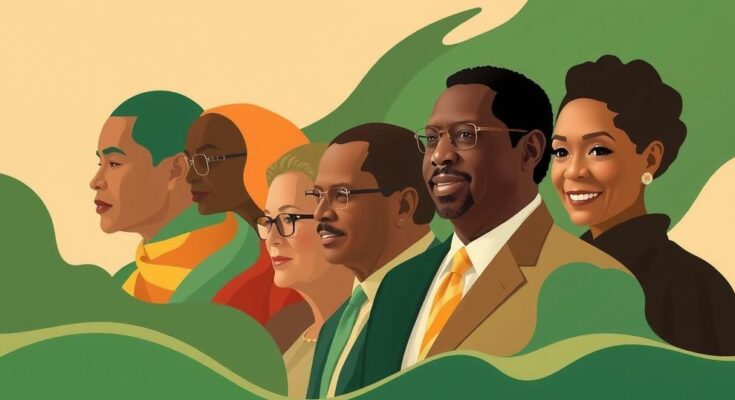Kirsty Coventry, a candidate for IOC president, has become controversial due to her role as Zimbabwe’s sports minister amidst a repressive political context. Her platform advocates for ethical standards but her connection to the regime raises questions about her integrity and suitability. Despite her historic potential as the first female IOC president, critics argue her past actions disqualify her from leading the organization.
The International Olympic Committee (IOC) is poised to elect a new president, with Kirsty Coventry, Zimbabwe’s highly acclaimed Olympian, among the seven candidates. Coventry’s potential election could make her the first woman to hold this prestigious position. However, her role as Zimbabwe’s sports minister since 2018 has sparked controversy, as many view her as a representative of the oppressive regime she now embodies.
Running on a platform advocating “zero tolerance for corruption” and emphasizing political neutrality, Coventry’s past is intertwined with politics. Originally part of Zimbabwe’s white minority, her career gained political traction during the Mugabe administrations. Notably, her comments on policy issues and her athletic success positioned her as a beacon for the regime, particularly during the heightened tensions in Zimbabwe’s sociopolitical landscape.
Coventry’s accolades contributed to Zimbabwe’s national prestige during troubling times. At the Commonwealth Games in 2002, her gold medal marked a vital morale boost for a country under Western sanctions. The Mugabe government heralded her victories, with the leader dubbing her the nation’s “golden girl” after her achievements at the Olympics, which further solidified her political importance.
Throughout her career, Coventry has utilized her platform to call for change while simultaneously aligning herself with the Mugabe government. After the regime’s violent crackdowns on dissent and extreme hyperinflation that devastated the nation, her connection to Mugabe remained complex. Despite occasionally advocating for peace and unity, her political engagements increasingly suggested a deeper involvement in partisan politics.
Post-Mugabe, Coventry continued to publicly support the new regime under Emmerson Mnangagwa, even joining his cabinet amidst a controversial election. Her political loyalties aligned closely with the controversial figures of Zimbabwean politics, raising questions about her commitment to ethical governance. Despite public criticism of her ministerial performance, she remains steadfastly supported by Mnangagwa.
Calls for her resignation during regime-led violence went unheeded, and her presence at political events alongside ruling party figures has fed public discontent. Her recent reappointment despite criticism for her performance, which includes handling issues within sports, underscores the political maneuvering aimed at leveraging her popularity for regime benefit.
As a candidate for IOC presidency, Coventry’s insistence on ethical leadership is undermined by her actions in Zimbabwe. Critics argue that her involvement with the oppressive regime disqualifies her from leading an international institution dedicated to the integrity of sport and the Olympic spirit.
The perspectives shared in this article reflect the complexities of Coventry’s reputation within the context of Zimbabwe’s political framework and the significant challenges ahead for the IOC regarding leadership integrity.
In conclusion, Kirsty Coventry’s candidacy for the IOC presidency represents a significant challenge given her controversial association with the oppressive Zimbabwean regime. Despite her athletic accomplishments and a call for ethical governance, her actions as a minister raise serious questions about her suitability for such a leadership role. The focus on her political affiliations and the implications for the integrity of the IOC emphasizes the complexities surrounding her potential election, as stakeholders must critically assess the implications of her past on the future of the Olympics.
Original Source: www.newsweek.com




